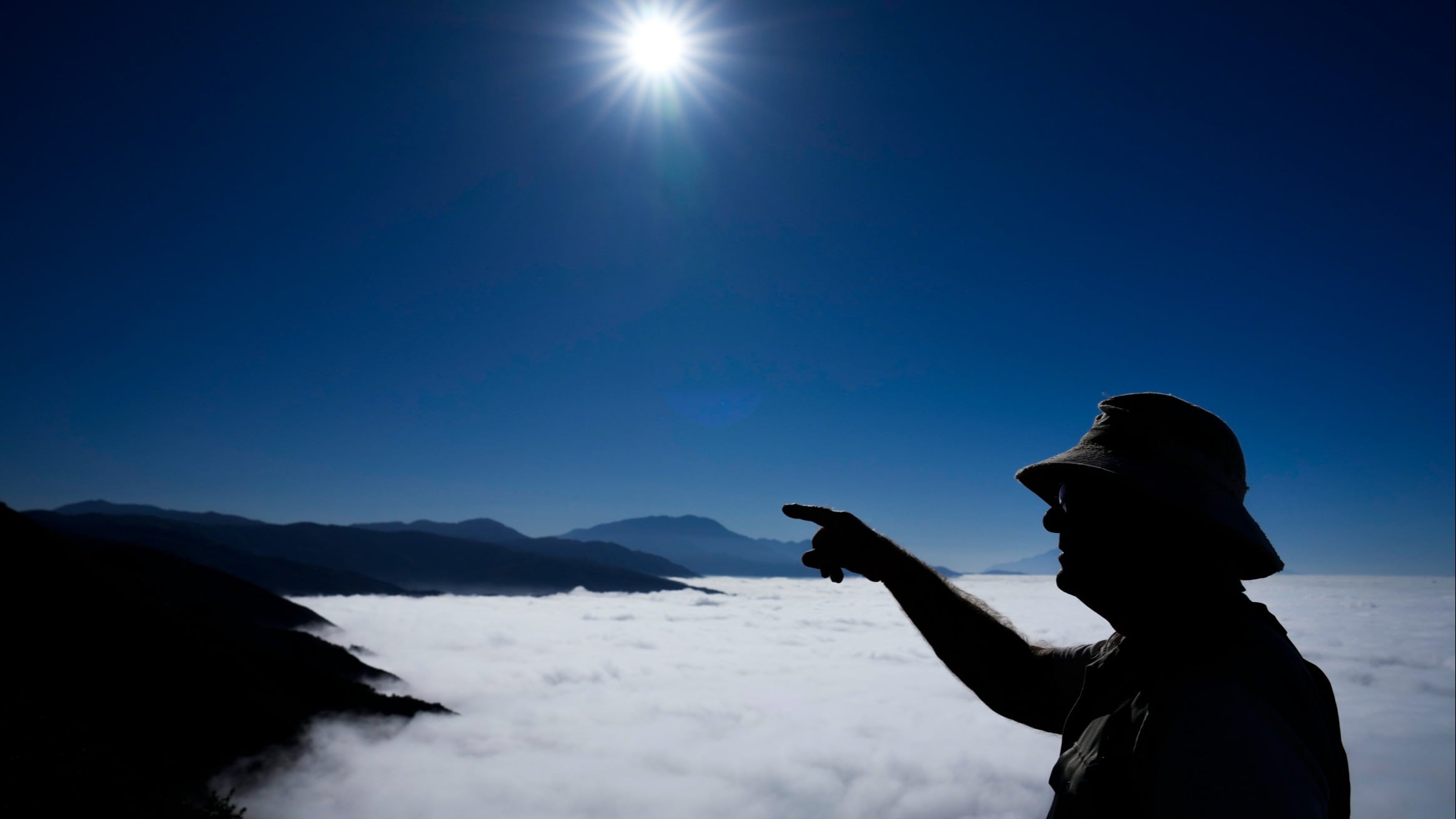By Adan Beam and Amy Taxin
California regulators on Tuesday ordered one of the country’s oldest bottled water brands to stop using some of the natural springs it has relied on for more than 100 years to market its products throughout the western U.S.
Arrowhead bottled water traces its roots to the Arrowhead Springs Hotel, which first opened in 1885 and began selling bottled spring water from its basement in 1906. But environmental and community groups say the company has never had legal permission to take water from the springs that flow out of the San Bernardino Mountains.
They say the company's actions have dried up Strawberry Creek, harming the environment and making the area more prone to wildfires.
Tuesday, the State Water Resources Control Board voted unanimously to order BlueTriton — the company that owns the Arrowhead brand — to stop taking water from a number of springs. The order does not ban the company from taking any water from the mountain. But it reduces how much water it can take.
“I understand a huge amount of money and business is at stake,” said board member Laurel Firestone. “It also is important for us that no matter how much money is involved that we are going to ensure that the laws of our state are upheld and that they apply to everybody.”
Lawyers for BlueTriton spent most of Tuesday's hearing arguing that the board does not have the authority to tell it what to do. They said the company takes the water from underground before it reaches the surface. They said the board does not have the power to regulate this type of groundwater. They also pointed to a 1931 court case that they said proves the company has the right to take the water from the springs.
Regulators disagreed, arguing the company could not bypass state regulators by simply going underground to snatch the water before it reached the surface. They also said the 1931 court ruling was about settling a dispute between two parties and not a declaration that the company has a right to take the water from the springs.
BlueTriton issued a statement before the hearing saying they would comply with any final determination from the board, but noted the company would “continue to preserve its legal rights through available administrative review channels.”
“We have never taken more water than we believe we are legally entitled to, nor will we in the future,” the statement said.
Tuesday's vote comes after years of fighting between the bottling company and residents who want to protect the watershed and see it restored to its natural state.
Residents of nearby communities raised questions about the drying habitat in places that once had springs supporting wildlife including fish. The U.S. Forest Service acknowledged that a permit for pipes carrying the water had expired and issued a new permit for this pipeline to the company, which then was Nestle Waters North America.
BlueTriton collected 68 million gallons (257 million liters) of water in 2019 from the spring but only bottled about 10 million gallons (38 million liters), returning most of the rest to the watershed, the company said in an email. A portion of the water the company collected was also channeled to a Native American tribe under a longstanding agreement.
The case has raised questions about water rights in California during a time when the state is grappling with how to manage the resource in the face of a drier future.
And it's not the first challenge against bottled water companies, either from consumer advocates or groups fighting against plastic waste. The U.S. Interior Department said earlier this year it would phase out the sale of all plastic water bottles in national parks. Poland Springs, also owned by Nestle and now BlueTriton, has faced lawsuits claiming its water doesn't come from a spring.
Amanda Frye, a resident of the nearby community of Redlands who investigated BlueTriton's claims to water rights, said she couldn't believe a private company was drawing water from a national forest and bottling it for sale.
“They turned a perennial stream into a dry creek bed," she said. “I am hoping this can all be restored and it will help our watershed."
Michael O'Heaney, executive director of the Story of Stuff project, said he doubts this will be the last of the fight. The group fights against over-consumption and is one of the parties to the hearing.
O’Heaney said that he and local residents will continue to pressure the state board to take action on the remaining points where the company is drawing water and the U.S. Forest Service to refrain from renewing a permit for the pipeline.
He also said he wants to see the company penalized for the years it took millions of gallons of water.
“It's a really valuable natural resource they're currently paying nothing for,” O’Heaney said.
Arrowhead got its name from a near-perfect arrowhead shape on the side of the San Bernardino Mountains, shaped by variations in geology and soil conditions.













